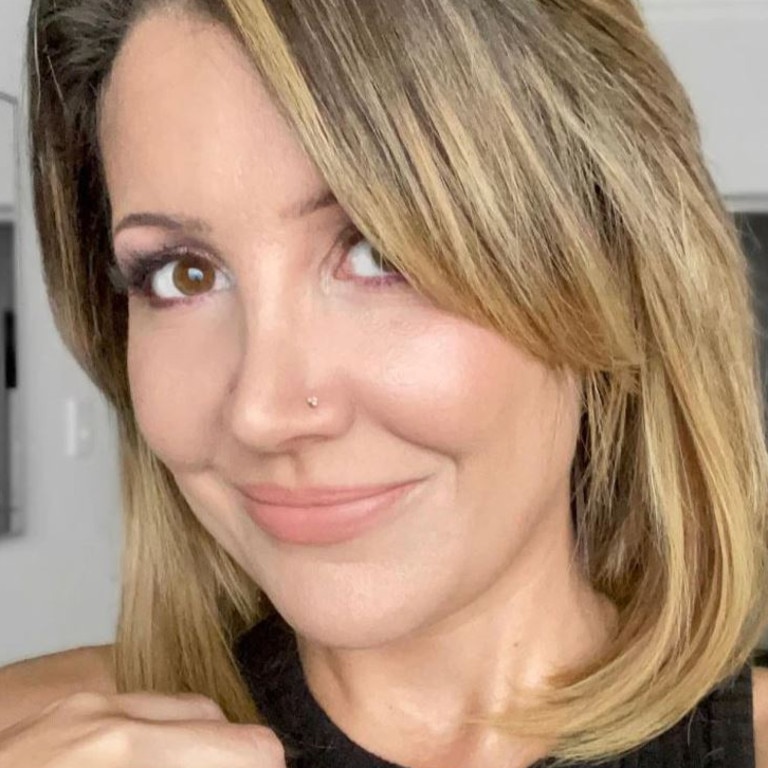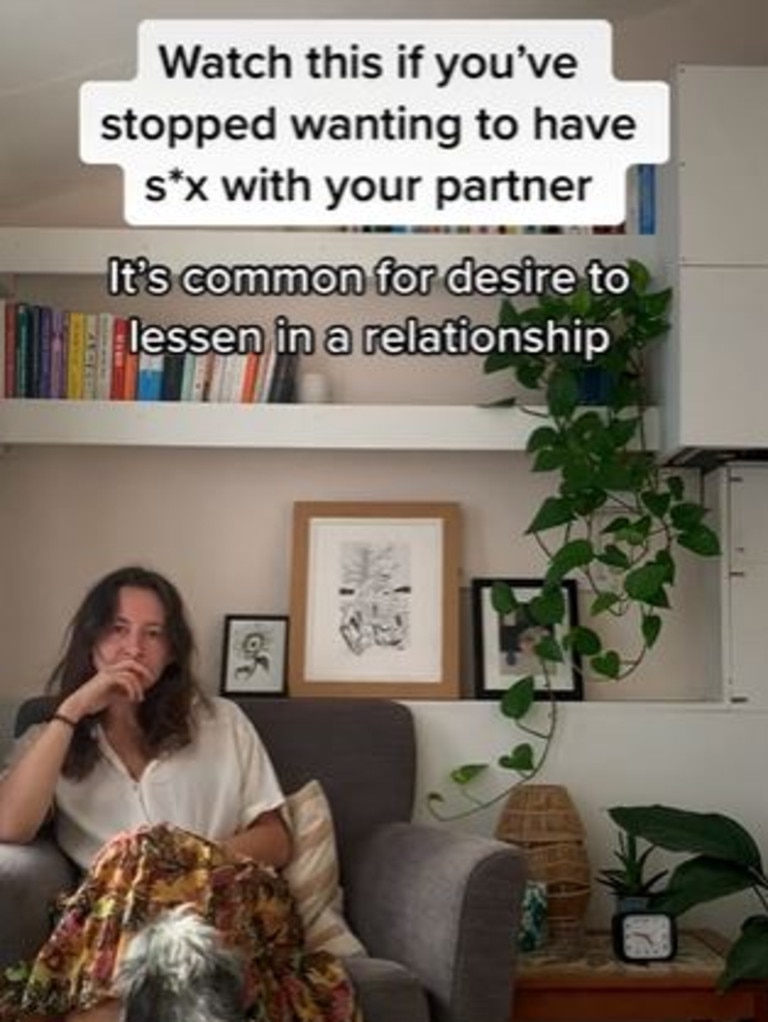Nadia Bokody: Weird reason couples stop wanting sex
A celebrity sex therapist recently went viral for revealing why couples stop having sex – but Nadia Bokody knows the easy way to fix it.
I don’t mean to brag, but I’m having a lot of sex right now.
Hot, orgasmic, life-changingly good sex.
That’s the thing about being in a new relationship, though, isn’t it?
Great sex is plentiful and effortless when adoration for your partner’s “cute” quirks (read: habits which will eventually invoke murderous fantasies) is surpassed only be the insatiable desire to tear their clothes off at all hours, in even the most scandalous of settings, where you’ll urgently contort yourself into impossible positions to make it happen.
(Reminder to self: book in with physio).
But as anyone who’s been in a long-term relationship knows, this debauchery inevitably gives way to the monotonous churn of domestic life, and in its place are often long stretches of sexlessness interspersed with the sort of rushed, predictable sheet-shifting you swore you’d never have with your new bae.
It’s a ubiquitous phenomenon psychologists refer to as “the intimacy-desire paradox”, because – rather frustratingly – the very thing we crave most in a new relationship (closeness, security, and comfort) is antithetical to what’s required to sustain our interest in it (regular hot sex).

While familiarity doesn’t always breed contempt, it would certainly seem that – from myriad longitudinal studies assessing sexual desire and frequency in long-term relationships – it’s a pretty sure-fire libido killer. Especially for women.
A survey of over 10,000 people published in the British Medical Journal Open found women’s interest in having sex with their partners dramatically diminished within a year of cohabiting with them. And a seven-year Finnish study uncovered a strong correlation between relationship duration and a decline in a woman’s reported levels of arousal and sexual satisfaction.
For heterosexual women, there are compounding factors involved in this drop-off.
Current HILDA figures show they double their domestic workload when they shack up with a male partner. And a Pew Research Centre poll found this to be true even when women worked longer hours outside the home and earned higher salaries than their husbands.
Unsurprisingly, when asked, coupled-up female survey respondents reported they were “often” or “almost always” stressed.
Stress on its own has a negative impact on our sex hormones, but when coupled with being parentified by a partner who expects you to clean up after them, it’s a recipe for sexual anorexia.
Courteney Cox’s ex David Arquette famously admitted Cox stopped getting it on with him on account of the pair forming this dynamic.
“We’re not having sex, and I completely understand,” Arquette revealed in a 2010 interview with Howard Stern.
“She says that to me: ‘I don’t wanna be your mother anymore’ … I respected that. I’ve been going to therapy. I’m trying to grow up.”
Psychotherapist Annie Zimmerman, who goes by @Your_Pocket_Therapist on TikTok, suggests the sexual aversion we may feel to a partner we’ve developed this kind of relationship with has to do with basic biological programming.
“The more someone feels like family, the less desire we have for them, because it’s in our biological instincts to not be attracted to our family members,” Zimmerman explains in a recent TikTok clip.
Of course, straight women have been joking about having husbands who feel more like their sons since the dawn of the internet meme. But while picking a partner’s dirty socks up off the living room floor might provide comedic fodder, it’s also a potent anti-aphrodisiac.
In a paper published in the Journal of Sex and Marital Therapy examining loss of desire in long-term relationships, women described being expected to simultaneously perform the roles of mother, wife and employee as “highly desexualising”.
The paper also notes that “feeling overwhelmed by daily responsibilities and perceiving oneself almost solely as a mother and caregiver may contribute to lower sexual desire [in women]”.


The good news is, research has found couples who divide domestic labour equitably enjoy more satisfying sex lives than those who don’t. And this is likely because, when we perceive a partner as an equal, we’re more easily able to view them as a separate individual with their own interests, dreams, and desires outside the relationship – which is key to tackling the intimacy-desire paradox.
As celebrity sex and relationship therapist Esther Perel says, “Love enjoys knowing everything about you; desire needs mystery … If intimacy grows through repetition and familiarity, eroticism is numbed by reputation.”
In short, enduring desire ironically has very little to do with sex, and much more to do with maintaining individuality within a relationship, to avoid fostering the familial dynamic likely to trigger sexual aversion. (Something which is impossible to sidestep when you’re resentfully cleaning a partner’s Doritos crumbs off the couch.)
And sure, you won’t always have the sex-fest you had in the beginning (which is frankly for the best, because no one needs to have to explain to their physio how they managed to put their back out in a McDonald’s drive-through), but you can keep the flame alive, regardless.
In the meantime, if you haven’t surpassed the sexual honeymoon period (read: you still think your partner’s insistence on talking with their mouth full is endearing), you should definitely enjoy the effortless, frequent sex, and take every opportunity you can to be smug about it.
Follow Nadia Bokody on Instagram and YouTube for more sex, relationship and mental health content.






